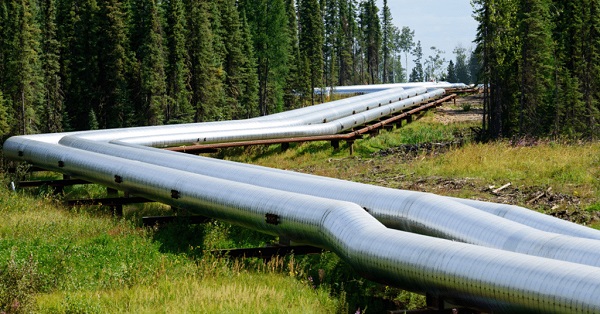Dan McTeague
COP27 – Playing the fiddle while Rome burns

In case you missed the (mainstream) media frenzy, the 27th Conference of the Parties (COP) to the United Nations Framework Convention on Climate Change (UNFCCC) just wrapped up in Egypt.
This is the annual conference that highlights just how completely out of touch the elites, environmentalists and world leaders truly are, including our own prime minister.
In the weeks leading up to COP, the media was full of hysterical statements from politicians, UN bureaucrats, and activists. In October, the British newspaper The Guardian quoted UN Secretary General Antonio Gutteres: “The fossil fuel industry is killing us.” In the same piece the “co-founder” of a “change agency” (whatever that is) says we’re facing “Armageddon”. Gutteres told the delegates we’re on a “highway to climate hell”. Celebrities fly in on their private jets and pose for pictures. Politicians make more hysterical speeches.
There were lots of meetings and negotiations. It always turns out that the last round of green plans and “climate” policies didn’t quite work, and the solution is always, well, more plans and policies. Then they do it all again the next year.
And it would be funny if it weren’t so damaging. If ever the expression ‘playing the fiddle while Rome burns’ applied, this is it.
Domestically, Canadians are struggling to pay for food, heat, and housing. Inflation is driving up the cost of everything and Canadians are feeling it. Food banks across the country are sounding the alarm on record breaking visits. They note that it is no longer the unemployed that are primarily visiting them, it is the ‘working poor’ those who are employed but simply cannot make ends meet. Many Canadians are choosing between heating their homes or feeding their families. The situation is bad. And it’s even worse in Europe, but that’s another story.
In the midst of this, the Trudeau government is focusing their time and our resources on what? Greenhouse gases that might raise temperatures very slightly over the next quarter-century. And they are doing this at enormous expense. The cost of this climate cult to Canadians is mind-boggling. Since 2015, Trudeau has spent 60 billion dollars trying to get our tiny contribution to global greenhouse emissions – around 1.5 percent – even lower.
Over the next thirty years, the total cost of the government’s climate initiatives will be around 2 trillion.
Let that number sink in.
But that’s just what they’re spending. In addition, we should think about rising carbon taxes and energy costs, which make everything more expensive. We should think about the jobs we’ll lose, and the massive profits we could be making if the government would let our resource sector operate normally.
And have the last 26 COP conferences slowed the warming trend? Of course not. While according to Canadian Minister of Environment and Climate Change Steven Guilbeault“progress on commitments was at the forefront of this COP,” you can be sure there will need to be a 28th, and a 29th and a 35th COP conference. At some point, Einstein’s definition of insanity might apply – doing the same thing over and over again and expecting a different result.
It goes to show just how out of touch the Trudeau government is. It is an insult to have Canadians pay for politicians and bureaucrats to be “COP delegates” and to fly halfway around the world for another pointless conference. We’re on a highway to hell, alright, but not because the world may be a little warmer in 2050.
Automotive
Canada’s EV gamble is starting to backfire

Things have only gone from bad to worse for the global Electric Vehicle industry. And that’s a problem for Canada, because successive Liberal governments have done everything in their power to hitch our cart to that horse.
Earlier this month, the Trump Administration rolled back more Biden-era regulations that effectively served as a back-door EV mandate in the United States. These rules mandated that all passenger cars be able to travel at least 65.1 miles (and for light trucks, 45.2 miles) per gallon of gasoline or diesel, by the year 2031. Since no Internal Combustion Engine (ICE) vehicle could realistically conform to those standards, that would have essentially boxed them out of the market.
Trump’s rolling them back was a fulfillment of his campaign promise to end the Biden Administration’s stealth EV mandates. But it was also a simple recognition of the reality that EVs can’t compete on their own merits.
For proof of that, look no further than our second bit of bad news for EVs: Ford Motor Company has just announced a massive $19.5 billion write-down, almost entirely linked to its aggressive push into EVs. They’ve lost $13 billion on EVs in the past two years alone.
The company invested tens of billions on these go-carts, and lost their shirt when it turned out the market for them was miniscule.
Ford’s EV division president Andrew Frick explained, “Ford is following the customer. We are looking at the market as it is today, not just as everyone predicted it to be five years ago.”
Of course, five years ago, the market was assuming that government subsidies-plus-mandates would create a market for EVs at scale, which hasn’t happened.
As to what this portends for the market, the Wall Street Journal argued, “The company’s pivot from all-electric vehicles is a fresh sign that America’s roadways – after a push to remake them – will continue to look in the near future much like they do today, with a large number of gas-powered cars and trucks and growing use of hybrids.”
And that’s not just true in the U.S. Across the Atlantic, reports suggest the European Union is preparing to delay their own EV mandates to 2040. And the U.K.’s Labour government is considering postponing their own 2030 ICE vehicle ban to align with any EU change in policy.
It’s looking like fewer people around the world will be forced by their governments to buy EVs. Which means that fewer people will be buying EVs.
Now, that is a headache for Canada. Our leaders, at both the federal and provincial levels, have bet big on the success of EVs, investing billions in taxpayer dollars in the hopes of making Canada a major player in the global EV supply chain.
To bolster those investments, Ottawa introduced its Electric Vehicle mandate, requiring 100 per cent of new light-duty vehicle sales to be electric by 2035. This, despite the fact that EVs remain significantly more expensive than gas-and-diesel driven vehicles, they’re poorly suited to Canada’s vast distances and cold climate, and our charging infrastructure is wholly inadequate for a total transition to EVs.
But even if these things weren’t true, there still aren’t enough of us to make the government’s investment make sense. Their entire strategy depends on exporting to foreign markets that are rapidly cooling on EVs.
Collapsing demand south of the border – where the vast majority of the autos we build are sent – means that Canadian EVs will be left without buyers. And postponed (perhaps eventually canceled) mandates in Europe mean that we will be left without a fallback market.
Canadian industry voices are growing louder in their concern. Meanwhile, plants are already idling, scaling back production, or even closing, leaving workers out in the cold.
As GM Canada’s president, Kristian Aquilina, said when announcing her company’s cancellation of the BrightDrop Electric delivery van, “Quite simply, we just have not seen demand for these vehicles climb to the levels that we initially anticipated…. It’s simply a demand and a market-driven response.”
Prime Minister Mark Carney, while sharing much of the same environmental outlook as his predecessor, has already been compelled by economic realities to make a small adjustment – delaying the enforcement of the 2026 EV sales quotas by one year.
But a one-year pause doesn’t solve the problem. It kicks the can down the road.
Mr. Carney must now make a choice. He can double down on this troubled policy, continuing to throw good money after bad, endangering a lot of jobs in our automotive sector, while making transportation more expensive and less reliable for Canadians. Or he can change course: scrap the mandates, end the subsidies, and start putting people and prosperity ahead of ideology.
Here’s hoping he chooses the latter.
The writing is on the wall. Around the world, the forced transition to EVs is crashing into economic reality. If Canada doesn’t wake up soon, we’ll be left holding the bag.
Dan McTeague
Will this deal actually build a pipeline in Canada?

By Dan McTeague
Will Carney’s new pipeline deal actually help get a pipeline built in Canada? As we said before, the devil is in the details.
While the establishment and mainstream media cheer on the new pipeline agreement, there are specific details you need to be aware of.
Dan McTeague explains in his latest video.
-

 Agriculture22 hours ago
Agriculture22 hours agoWhy is Canada paying for dairy ‘losses’ during a boom?
-

 Automotive1 day ago
Automotive1 day agoFord’s EV Fiasco Fallout Hits Hard
-

 Alberta23 hours ago
Alberta23 hours agoAlberta’s new diagnostic policy appears to meet standard for Canada Health Act compliance
-

 Censorship Industrial Complex24 hours ago
Censorship Industrial Complex24 hours agoTop constitutional lawyer warns against Liberal bills that could turn Canada into ‘police state’
-

 Business2 days ago
Business2 days agoThere’s No Bias at CBC News, You Say? Well, OK…
-

 Energy2 days ago
Energy2 days agoMortgaging Canada’s energy future — the hidden costs of the Carney-Smith pipeline deal
-

 International2 days ago
International2 days agoAustralian PM booed at Bondi vigil as crowd screams “shame!”
-

 International2 days ago
International2 days ago2025: The Year The Narrative Changed








